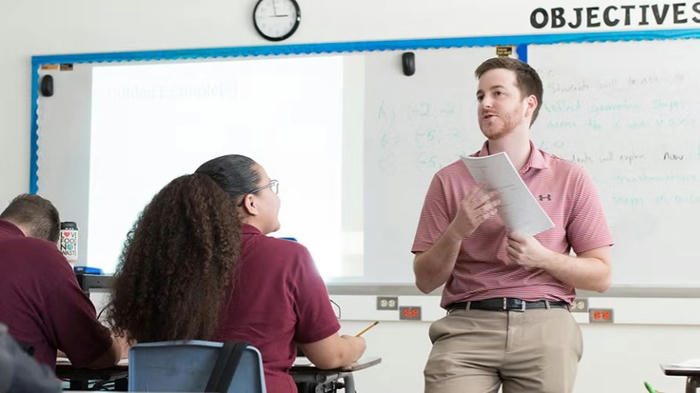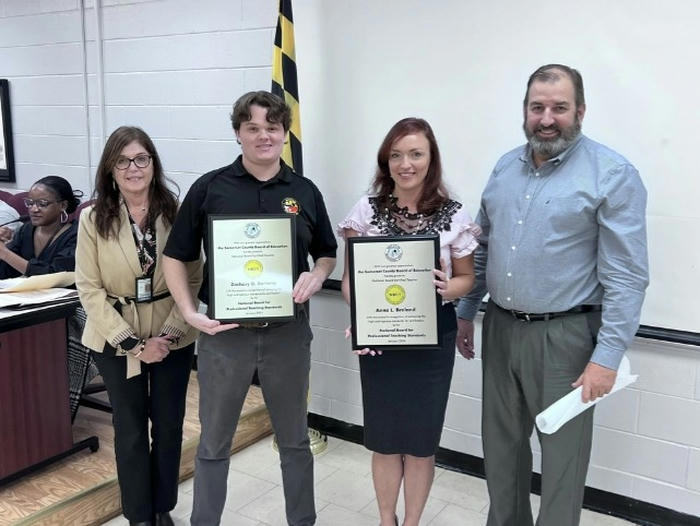How to Get Teacher Certification: A Complete Guide to Becoming a Certified Educator
Becoming a certified teacher is a fulfilling journey that allows you to impact students' lives while building a stable and rewarding career. Whether you're an aspiring teacher fresh out of college or someone looking for a career change, understanding the steps to earn your teaching certification is crucial. In this guide, we'll cover everything from certification requirements to training programs, alternative pathways, and a real-life success story to inspire your journey.
Why Teacher Certification Matters
Teacher certification is a mandatory requirement in most states and countries to ensure that educators meet professional standards. Certified teachers often enjoy:
Better Job Prospects – Public and private schools prefer certified educators.
Higher Salaries – Certified teachers generally earn more than their non-certified counterparts.
Job Security & Benefits – Teaching is a profession that offers long-term stability, pension plans, and healthcare benefits.
Opportunities for Advancement – Certified teachers have access to leadership roles such as department heads, instructional coaches, and school administrators.
Whether you're passionate about working with young children, high school students, or adults in higher education, teacher certification is the first step toward a long-term, successful career in education.
How to Get Teacher Certification: Step-by-Step Guide

1.Earn a Bachelor's Degree
To become a certified teacher, most states and countries require at least a bachelor’s degree in education or a related field. However, those with degrees in other subjects can pursue additional coursework to qualify for certification.
Key Considerations:
Degrees in Education, English, Science, Math, or Social Studies are highly preferred for K-12 teaching.
Many certification programs accept candidates with non-education degrees but require extra coursework.
2.Complete a Teacher Preparation Program
A teacher preparation program is essential to gaining practical classroom experience. These programs provide:
Educational Theory and Methods – Learn instructional strategies, lesson planning, and classroom management.
Student Teaching Experience – Hands-on training in a real classroom under the supervision of a mentor teacher.
Where to Find Programs:
Traditional university-based teacher education programs.
Alternative post-bachelor’s teacher training programs (for career changers).
Online programs designed for working professionals.

3.Pass the Required Certification Exams
Most states and countries require aspiring teachers to pass standardized exams before receiving certification. Common tests include:
Praxis Series – Widely used in the United States to assess knowledge in teaching and subject areas.
State-Specific Exams – Some regions have unique certification tests, such as the FTCE (Florida Teacher Certification Exam) or TExES (Texas Examinations of Educator Standards).
TESOL/ESL Certification – Required for teaching English as a Second Language.
4.Apply for State Licensure
Once you meet education and testing requirements, you must apply for state licensure or certification. This process includes:
Submitting academic transcripts and exam scores.
Completing a background check.
Meeting any additional state requirements (such as fingerprinting or ethics training).
5.Consider Alternative Certification Paths
If you don’t have a traditional education degree, alternative certification programs offer a faster route to becoming a teacher. These programs are designed for professionals transitioning from other careers and may include:
Teach for America (TFA) – A highly competitive program that places professionals in underserved schools.
Post-Baccalaureate Certification Programs – Short-term courses to help degree holders gain certification.
Emergency or Provisional Licensure – Some states allow candidates to teach while completing certification.

Top Teacher Certification Programs
Here are some highly regarded teacher certification programs to consider:
1.American Board for Certification of Teacher Excellence (ABCTE) – Online, self-paced certification program for career changers.
2.National Board for Professional Teaching Standards (NBPTS) – Advanced certification for experienced educators.
3.University-Based Programs – Harvard, Stanford, and Columbia offer some of the best teacher training courses.
4.Alternative Online Programs – Schools like Western Governors University (WGU) and Teach Now provide flexible certification options.
Real-Life Case Study: From Engineer to Certified Teacher
Meet Daniel: A Career Changer’s Success Story
Daniel, a 38-year-old mechanical engineer, always loved mentoring younger engineers and interns at his company. Despite his successful engineering career, he felt unfulfilled and yearned for something more meaningful—teaching.
After extensive research, Daniel enrolled in an alternative teacher certification program that allowed him to teach high school math while completing his coursework. The program provided:
A fast-track certification process – Daniel became a fully licensed teacher within 12 months.
Classroom support – He was paired with a mentor teacher who helped him adjust to lesson planning and classroom management.
Competitive salary & benefits – Within two years, Daniel earned tenure and was promoted to a lead mathematics teacher.
Today, Daniel is a respected educator and mentor, inspiring students to pursue careers in engineering and technology. His story proves that it’s never too late to follow your passion and make a difference through teaching.
How Long Does It Take to Become a Certified Teacher?
The time required for certification depends on your background:
Traditional Path (Education Degree) – 4 years (Bachelor’s + student teaching).
Alternative Certification (Career Changers) – 1 to 2 years.
Emergency Licensure – Immediate, but requires ongoing coursework.
Some online teacher certification programs can accelerate the process, allowing candidates to complete training in under 12 months.
Cost of Teacher Certification Programs
Teacher certification costs vary widely:
University-Based Programs – $10,000 to $40,000 for a full degree.
Alternative Certification – $2,000 to $6,000 for fast-track programs.
Online Certification Courses – $1,500 to $5,000, depending on the institution.
Many programs offer financial aid, grants, and scholarships to make certification more accessible.
Final Thoughts: Is Teacher Certification Worth It?
Becoming a certified teacher is a worthwhile investment for those passionate about education. Not only does it lead to a stable career, but it also offers the unique opportunity to shape young minds and make a lasting impact on society.
If you're considering teacher certification, take the time to research programs, requirements, and financial options to find the best path for you. Whether you’re a recent graduate, a career changer, or someone seeking a meaningful job, teaching is a rewarding and noble profession with endless opportunities for growth and fulfillment.
Ready to start your journey? Explore certification programs today and take the first step toward a rewarding teaching career!
